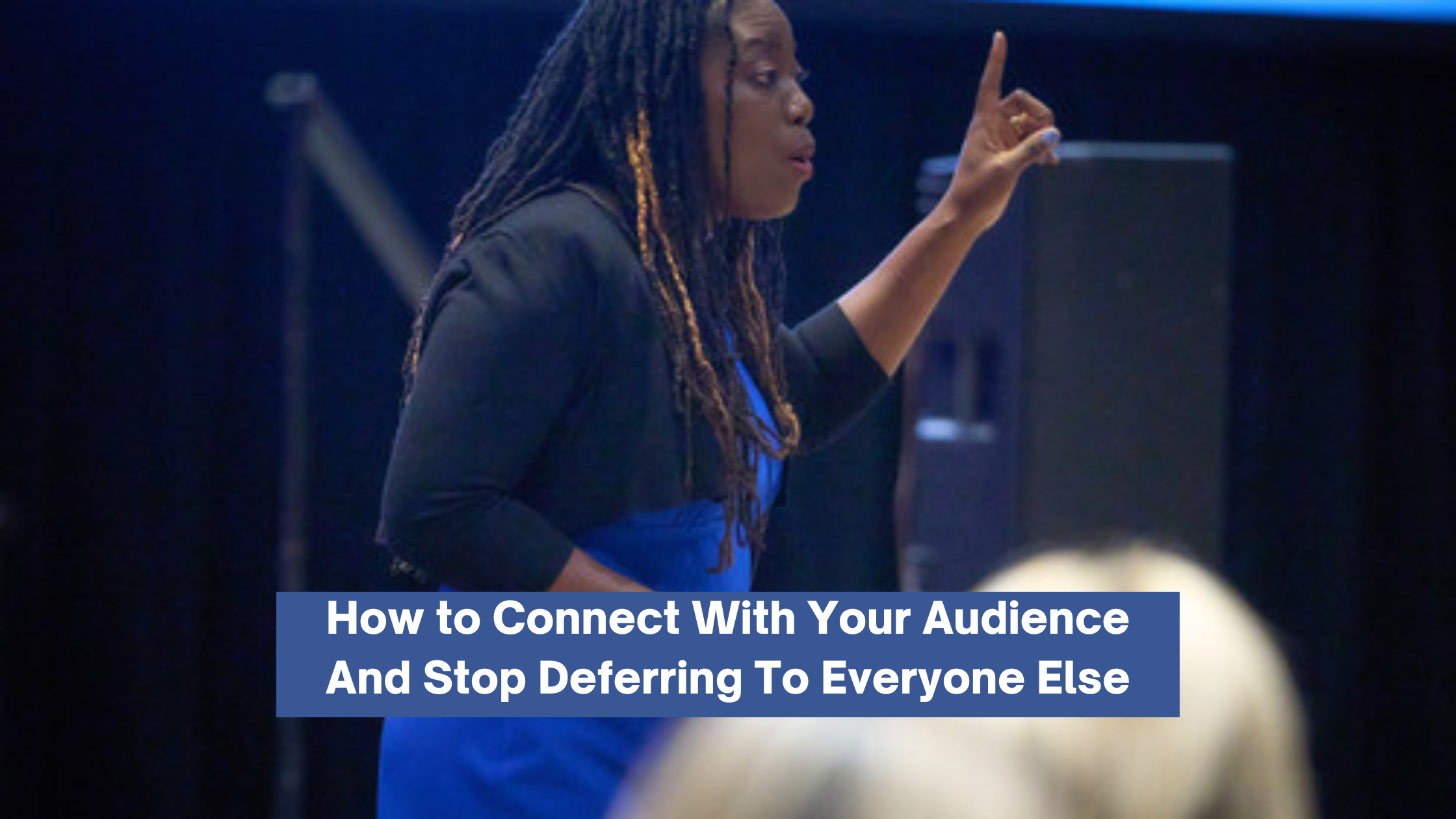
Do you find yourself deferring to the opinions of others in your speech and presentations? Have a hard time connecting to everyone else? Don’t worry, you’re not alone. As a matter of fact, it’s actually pretty common.
A lot of speakers struggle with connecting with their audience in a meaningful way because they haven’t identified their personal stances or perspectives on a variety of topics. Instead, they quote other well-known speakers and miss an opportunity to position themselves as thought leaders.
As a speaker, you have to connect to everyone else, you have to know how your audience thinks, what they want, and how to give it to them. If you don’t know those things, then you’re just going to be speaking in the dark, missing the mark each time.
I’m going to share some tips on how to connect with your audience—not by deferring to their opinions, but by bringing your own perspective and voice.
First, let’s take a look at what it means to “defer.” To defer is to put aside or postpone something until a later time. In the case of public speaking, it might mean that you are putting off sharing your own opinion in favor of sharing someone else’s opinion—or a quote from someone else (like an interviewee).
Why does this happen?
- Many people are scared to share their original ideas and perspectives. They think other people will criticize them or reject them. OR
- Some people are scared that their opinion is not good enough. They think other people are smarter or more well-read than they are.
It’s really common for people to doubt themselves, or experience impostor syndrome. The first thing to do is to figure out why it happens.
- Why do you have a hard time speaking up or connecting to everyone else? Is it because you feel you have been overlooked or ignored? Have you tried before but had negative results? Was it an embarrassment for you? Self-doubt can be crippling at times. When you doubt yourself, it can feel like nobody is on your side and that you don’t have much value to add, but you do. Chances are your mind is lying to you. Self-doubt is a learned behavior. It’s something you’ve taught yourself to do. And, like any skill, it can be unlearned.
Next, identify your audience. Figure out who they are and what they’re looking for. That will help you make meaningful examples in your presentations that you can build on.
- Ask yourself: Who are the people at the presentation? What do they believe? What do you need to hear? What are their demographics, and psychographics? How can I say this point, or deliver this message in multiple ways?
Lastly, integrate your own ideas.
- Talk through your ideas with someone else before presenting them to the group. Connect to everyone else could be a mentor, coach, or advisor—anyone who knows about your business or brand and can at least casually give you advice.
Once you have an understanding of who you are, who you’re talking to, and feel confident in your perspectives, you can start making changes. Maybe you want to start deferring less because you want people to see how amazing your ideas are. Maybe you want to defer less so that people will take what you say more seriously. Maybe you don’t have time to defer so much, and you need to learn how to have more confidence in what you say and do.
Wherever you are, and whatever your goal is, the best time to start is now.
Would you like to learn more about Clear Communication Solutions? Visit the media page, or if you’d like to book a consult for private coaching, contact me today.
